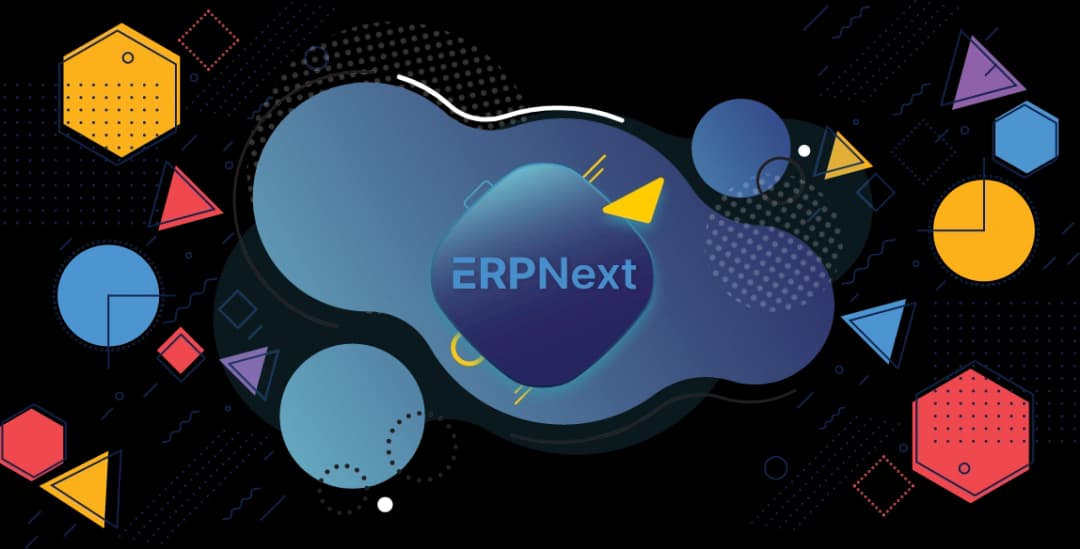Introduction

In today's dynamic business environment, an Enterprise Resource Planning System is a transformative solution that serves as the core framework for efficiently managing a company’s processes and resources. This blog post aims to provide a comprehensive understanding of what is ERP software, highlighting its definition, key functionalities, benefits, and why adopting an enterprise ERP system should be a strategic priority for every organization.
What is ERP Software?
Enterprise Resource Planning software is a comprehensive suite of integrated tools developed to automate and streamline an organization’s core business operations. From planning and procurement to inventory, sales, finance, marketing, and human resources, an enterprise ERP system ensures seamless data flow and process integration across all departments. At its core, an ERP system serves as a centralized digital platform, enabling companies to monitor, analyze, and manage every aspect of their business operations efficiently.
Important Features of ERP Software Integration
One of the standout features of an Enterprise Resource Planning System is its ability to consolidate various business functions and data into a unified interface. This integration enhances departmental collaboration and significantly improves overall operational efficiency.
1. Integration Capacity

An enterprise ERP system excels in integrating and centralizing disparate business processes into one cohesive system. This unified structure promotes seamless data sharing between departments, enhancing communication and ensuring consistent data management. By breaking down operational silos, ERP integration helps businesses gain a 360-degree view of their operations, leading to improved coordination and resource optimization. Updates made in one area reflect across the system, maintaining organizational coherence and efficiency.
2. Automation

Automation is a crucial benefit of the Enterprise Resource Planning System, as it minimizes manual tasks such as order entry, inventory updates, and payroll processing. This automation reduces human error and allows staff to focus on high-value tasks like strategic planning and customer relations. Automated workflows enhance accuracy, increase productivity, and contribute significantly to the organization's overall performance and scalability.
3. Real-time Data

One of the most powerful features of enterprise ERP software is access to real-time data. This capability empowers decision-makers with immediate insights into operations across departments. Whether monitoring finances, tracking inventory, or managing supply chains, real-time data enables timely, informed decisions, reduces risks, and identifies improvement opportunities in an ever-changing market landscape.
4. Scalability
Enterprise Resource Planning Systems are engineered with scalability in mind, allowing organizations to grow without outgrowing their technology. As businesses expand, ERP systems can accommodate more users, complex workflows, and additional functionalities. This scalability ensures the system evolves alongside your business goals, eliminating the need for constant overhauls or platform migrations.
5. Customization

Another hallmark of a strong enterprise ERP platform is its customization capability. Organizations can adapt the system to fit their unique workflows, industry requirements, and strategic priorities. Customizations can range from simple UI changes to the development of specialized modules that solve specific business challenges. This flexibility ensures the Enterprise Resource Planning System aligns perfectly with a company’s operational demands and long-term vision.
ERP Software Advantages
Discover how ERP software can transform your business with increased efficiency, visibility, cost reduction, and robust security.
Increased Efficiency

An Enterprise Resource Planning System significantly enhances operational efficiency by automating routine and manual tasks across departments. This allows employees to redirect their efforts toward higher-value strategic activities. Enterprise ERP streamlines core functions such as finance, HR, supply chain, and customer relations, reducing errors and accelerating workflows. The result is a noticeable increase in overall productivity, enabling teams to complete projects more efficiently and with fewer resources.
Increased Visibility
One of the key benefits of an Enterprise Resource Planning System is the improved visibility it offers. By integrating data from various departments, it creates a unified and reliable data source. What is ERP software if not a tool to centralize insights and optimize decision-making? Access to real-time analytics empowers leaders to monitor operations, detect inefficiencies, and make strategic decisions backed by data. This holistic view strengthens control and enables proactive business planning.
Cost Reduction

Leveraging an Enterprise ERP can lead to notable cost savings by streamlining operations and reducing dependency on manual labor. Automation reduces errors and increases accuracy, which helps eliminate costly mistakes. With enhanced visibility into operational data, businesses can identify waste, improve inventory control, and optimize resource allocation. As a result, organizations using an Enterprise Resource Planning System often see substantial improvements in profitability without compromising quality.
Security and Compliance

What is ERP software if not a secure foundation for data governance? Modern Enterprise Resource Planning Systems centralize data management, establishing uniform security protocols across the organization. This ensures safer access controls and guards against both internal and external threats. Additionally, Enterprise ERP solutions are designed to support compliance with industry regulations by offering built-in tools for audit tracking, data protection, and regulatory reporting.
Why Your Company Should Focus on ERP Software?
In today’s fast-paced business environment, being agile, efficient, and data-driven is vital for staying ahead. An Enterprise Resource Planning System provides integrated tools that support innovation, optimize operations, and enable informed decision-making. By implementing an Enterprise ERP, your business can streamline processes, enhance customer satisfaction, and significantly improve overall performance and profitability.
Whether you are a small business aiming to improve workflow or a large enterprise seeking to enhance visibility and control, understanding what is ERP software and its benefits is crucial. It serves as a strategic investment that adapts to your unique needs and supports your long-term growth and success.
Selecting Right ERP Software
Choosing the right ERP software is a critical decision. Here are the key factors to consider:
Assess Your Requirements

Before exploring the vast landscape of Enterprise ERP solutions, take time to evaluate your organization’s current challenges and desired outcomes. Identify which processes need improvement and how an Enterprise Resource Planning System can deliver measurable results.
Flexibility and Scalability
Opt for a Enterprise Resource Planning System that not only meets your current requirements but is also flexible and scalable for future growth. Evaluate how well the system can integrate with other technologies and adapt to your evolving business needs.
User-friendly Interface

Adoption is key to success when implementing ERP software. Ensure the solution you choose has a user-friendly interface that minimizes the learning curve and encourages consistent usage across your team.
Vendor Support and Reputation

A reliable vendor is crucial for successful Enterprise ERP implementation and long-term maintenance. Research vendor track records, service offerings, and customer feedback to ensure you’re partnering with a reputable provider.
Cost considerations

While an Enterprise Resource Planning System can be a significant investment, consider the total cost of ownership including implementation, licensing, maintenance, and training. Evaluate potential ROI to make a well-informed financial decision.
Implementing an Enterprise Resource Planning System
A successful ERP implementation requires careful planning and execution. Here are the essential steps:
1. Create a Project Plan

The implementation of an Enterprise Resource Planning System begins with a structured project plan. It should define business objectives, timelines, responsibilities, and measurable outcomes. A clear roadmap enables teams to navigate the deployment of enterprise ERP solutions effectively.
2. Involve Consumers

Engaging stakeholders across departments is vital to the successful adoption of an Enterprise Resource Planning System. Their input helps ensure that the ERP software aligns with diverse operational needs and supports cross-functional collaboration.
3. Invest in Training

To maximize the return on your Enterprise ERP investment, proper training is essential. Empower your workforce with the knowledge and tools to use the ERP software efficiently, thereby driving user adoption and continuous improvement.
4. Monitor and Improve

After deploying your Enterprise Resource Planning System, continuously assess its performance and gather feedback. Adapt and enhance functionalities to ensure the enterprise ERP evolves with your organization’s goals.
Look Ahead: ERP's Future
The future of ERP software is being reshaped by advances in technology and shifting business needs. Cloud deployment, artificial intelligence, and machine learning are transforming Enterprise Resource Planning Systems into smarter, more adaptable tools. These innovations enable organizations to gain real-time insights and remain agile in a competitive market.
Conclusion
In conclusion, understanding what is ERP software and implementing it strategically can transform operations. A robust Enterprise Resource Planning System not only streamlines business processes but also provides a foundation for innovation and growth.

.webp&w=1080&q=75)








